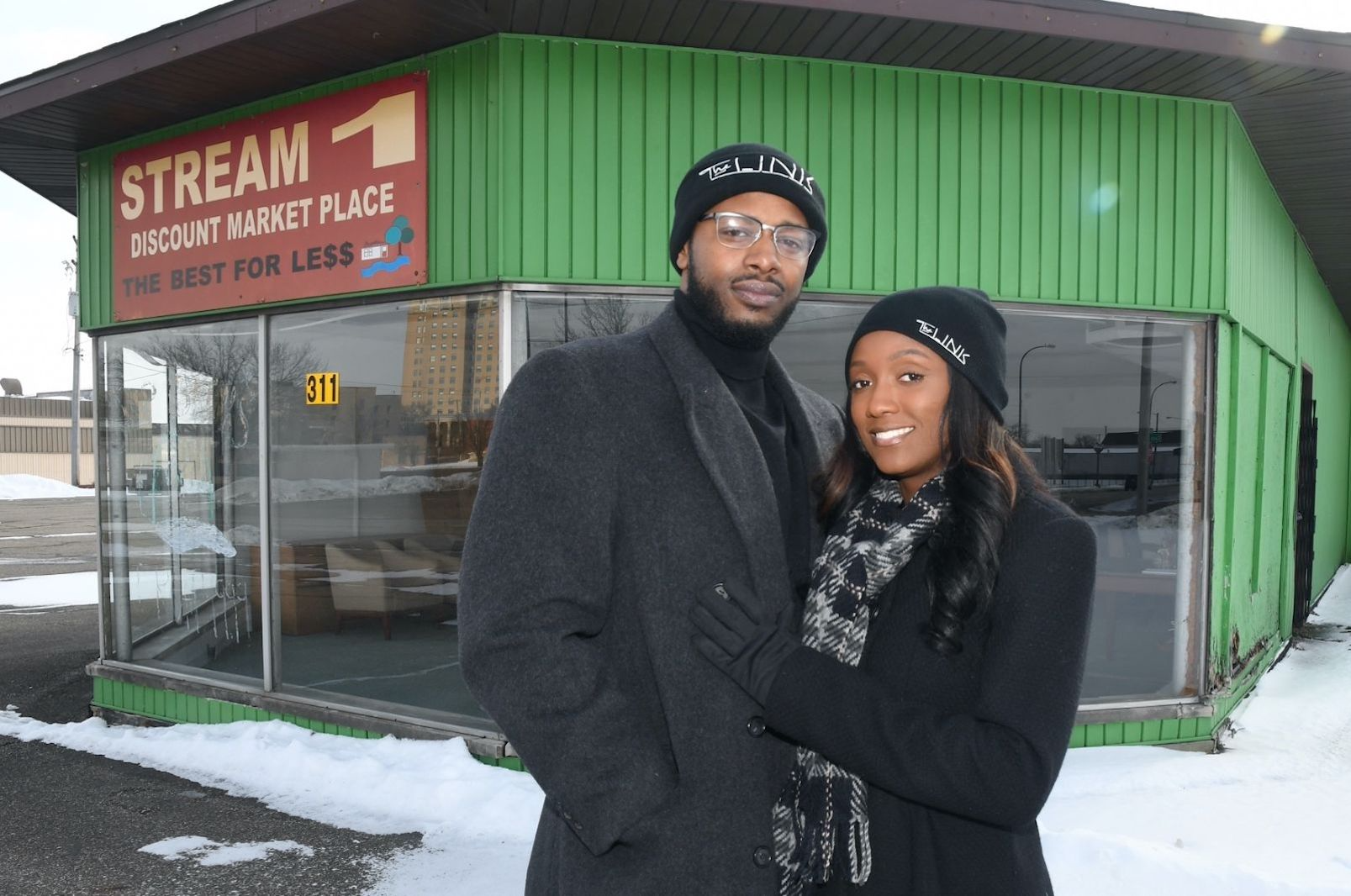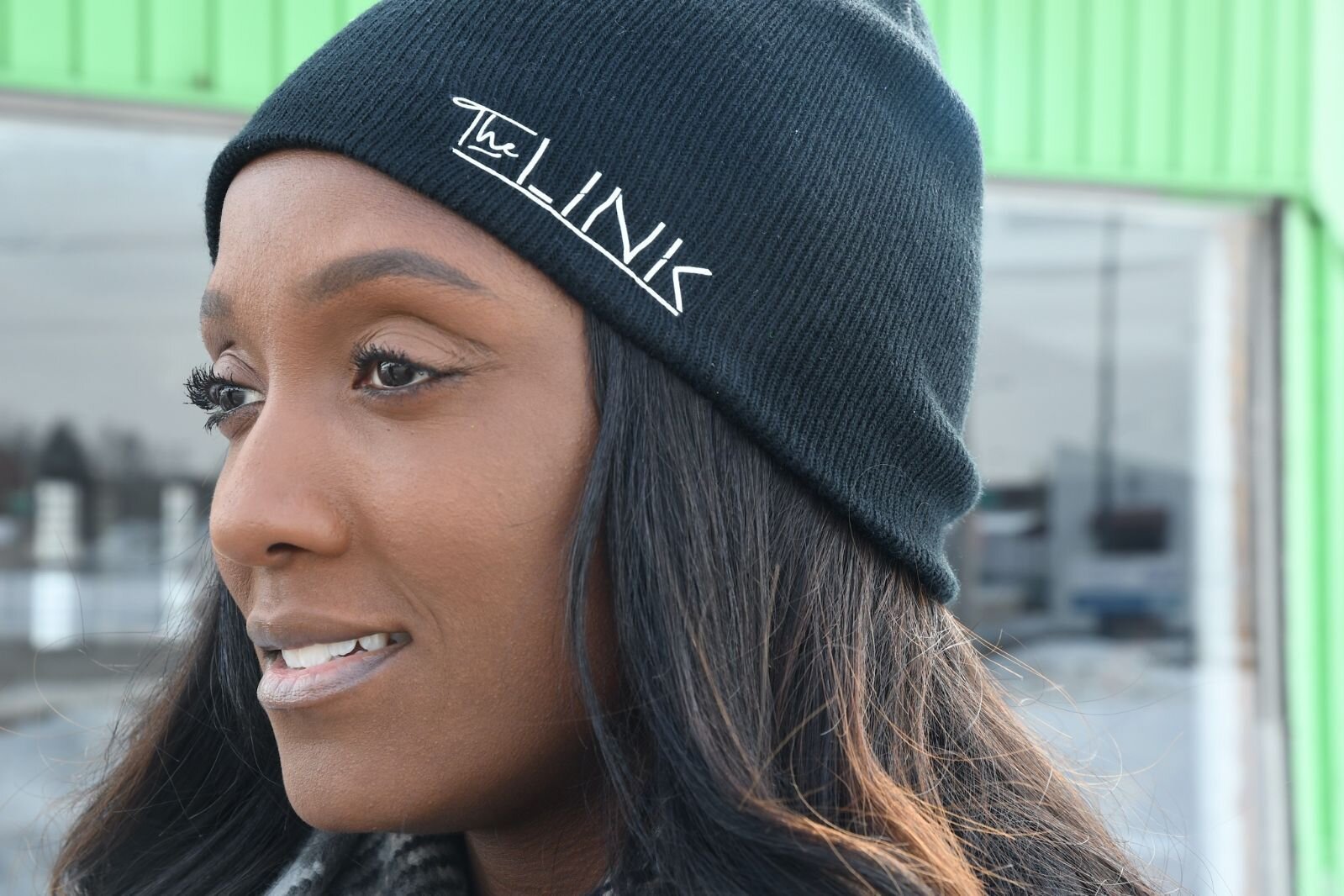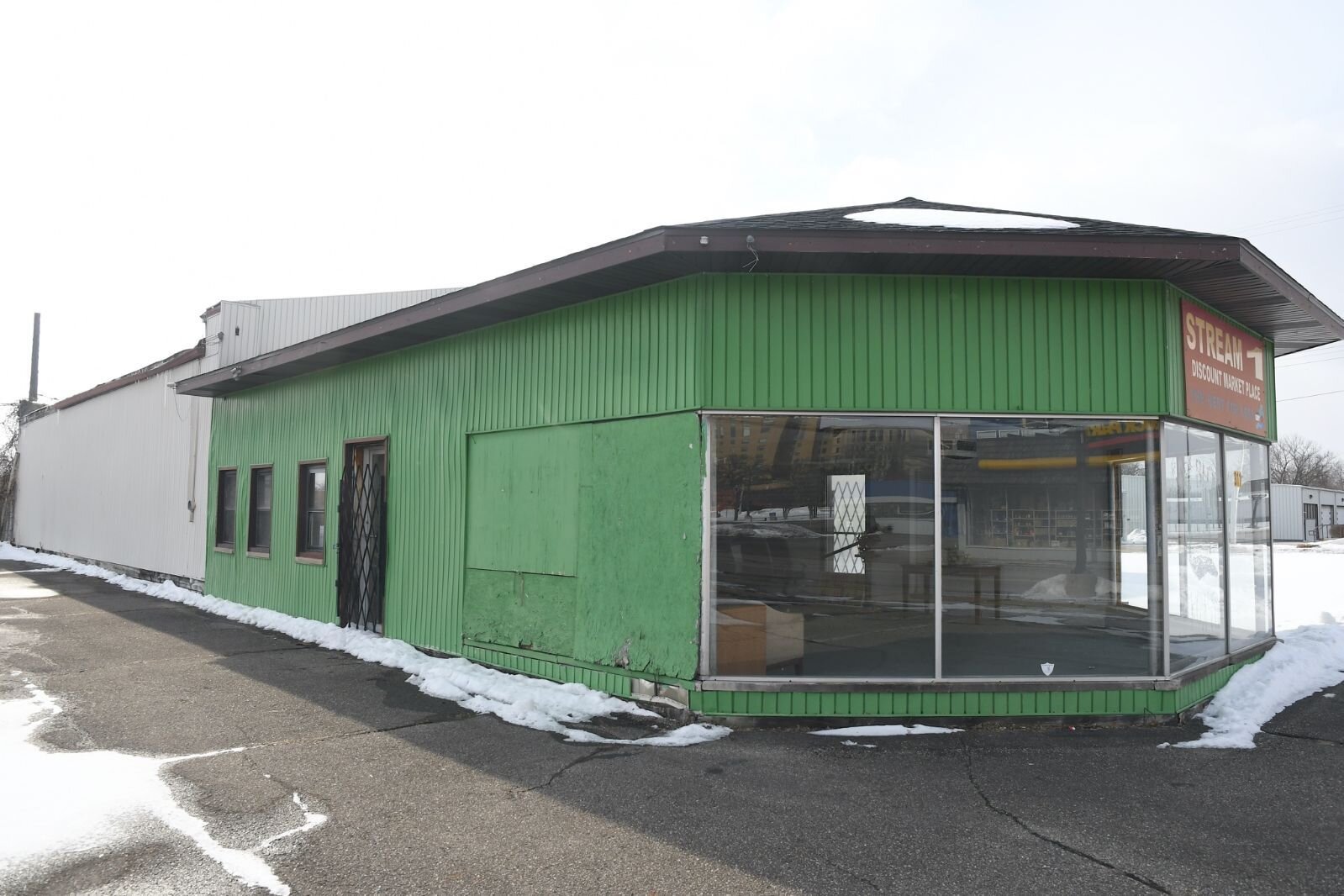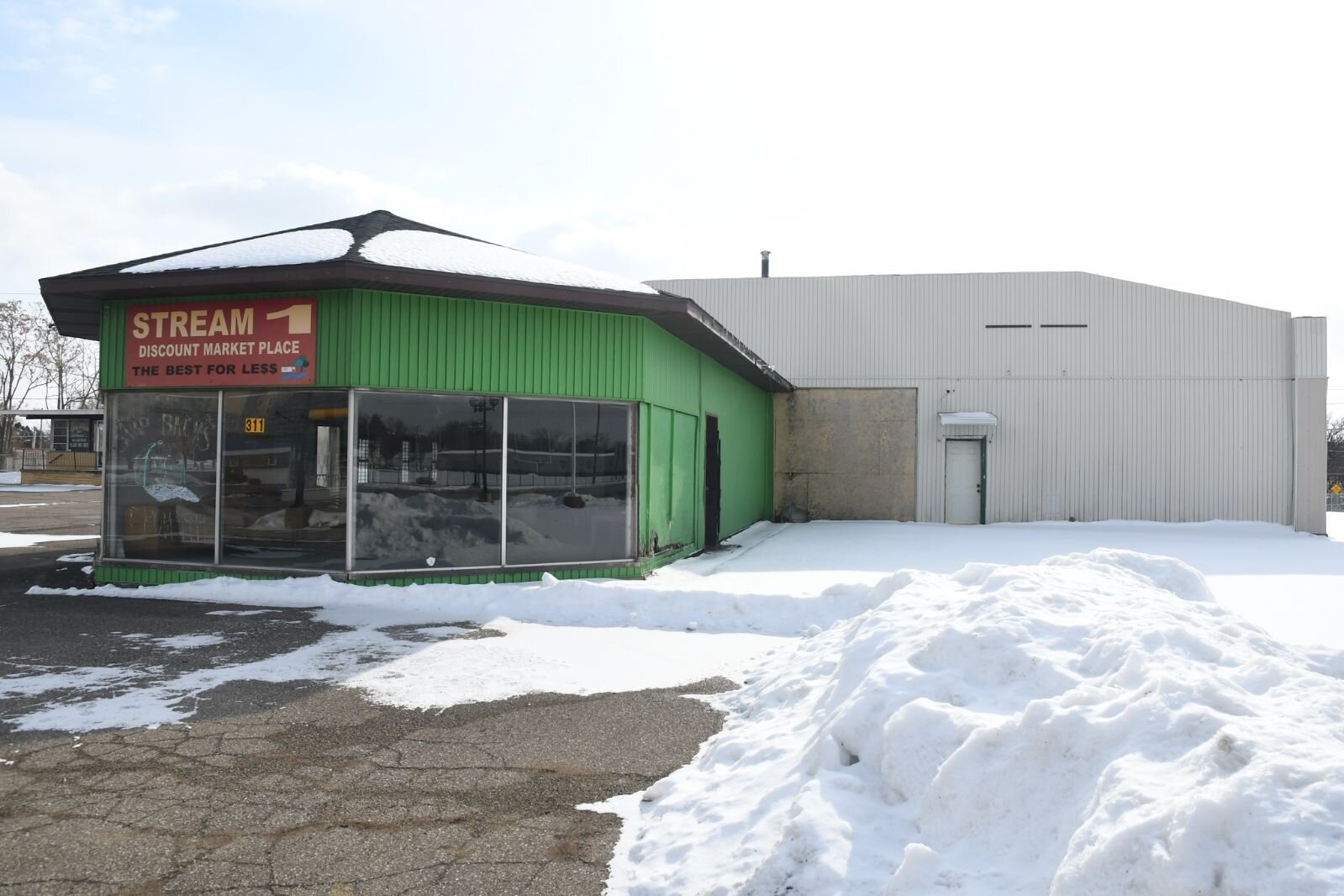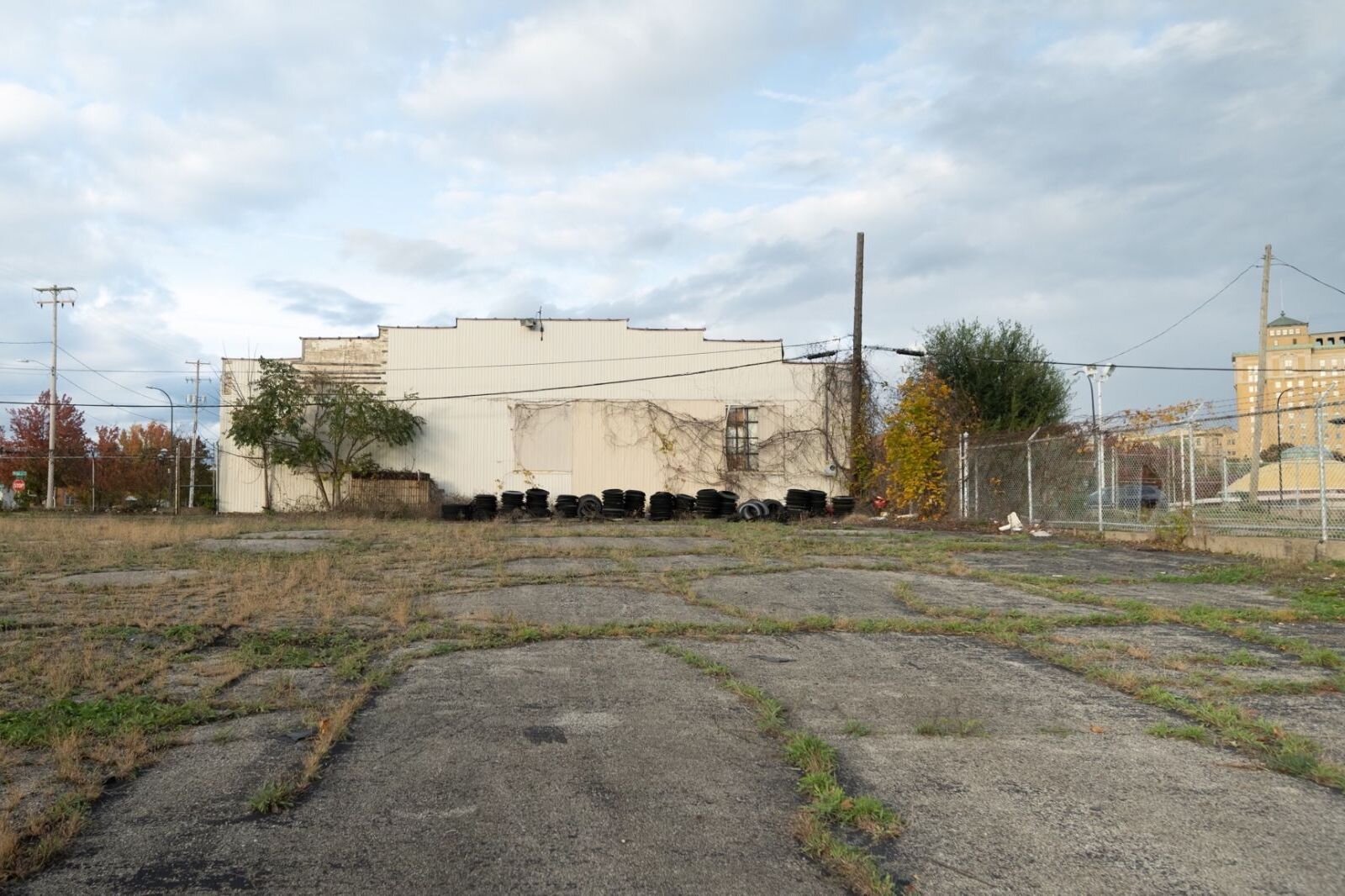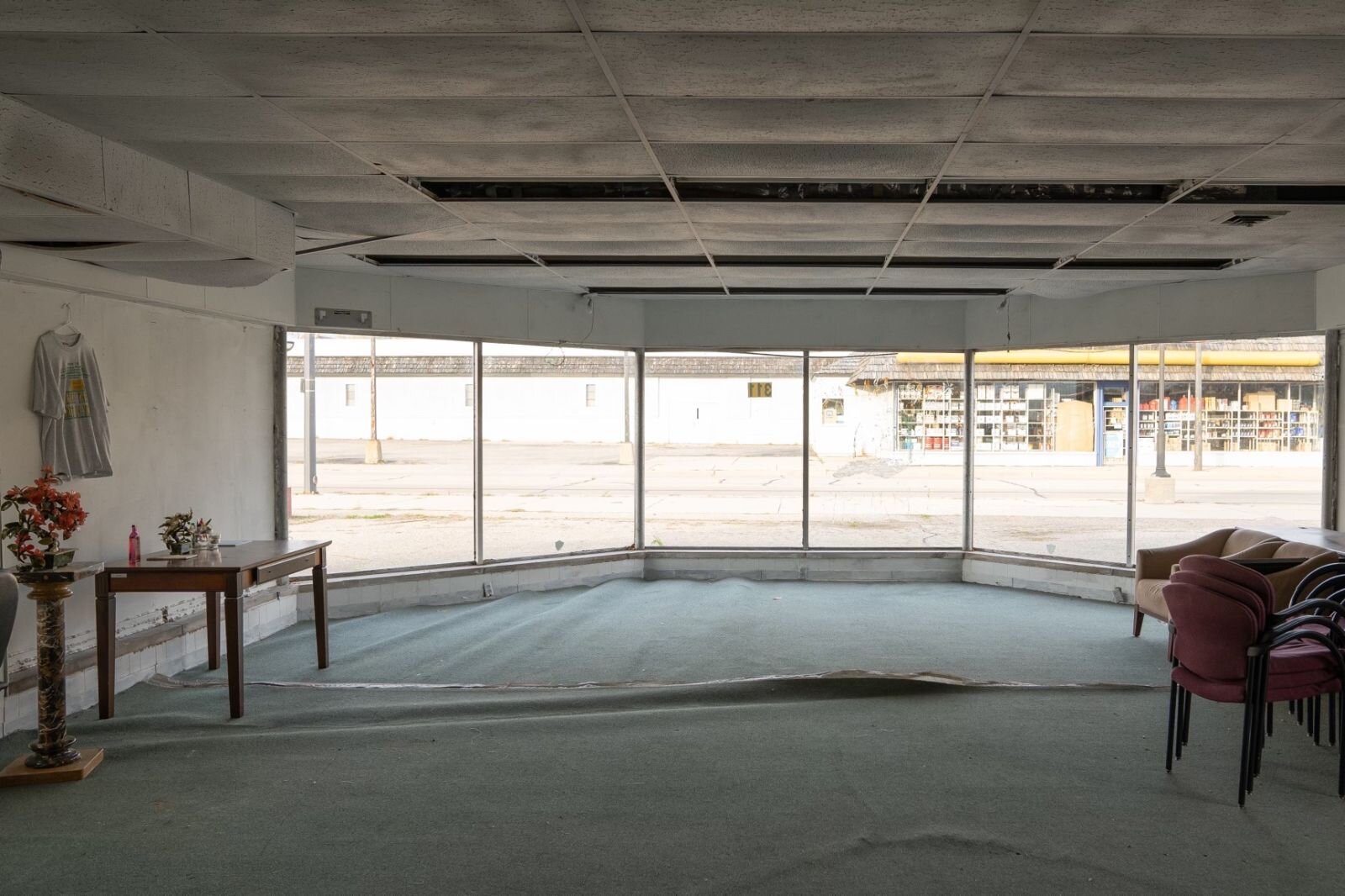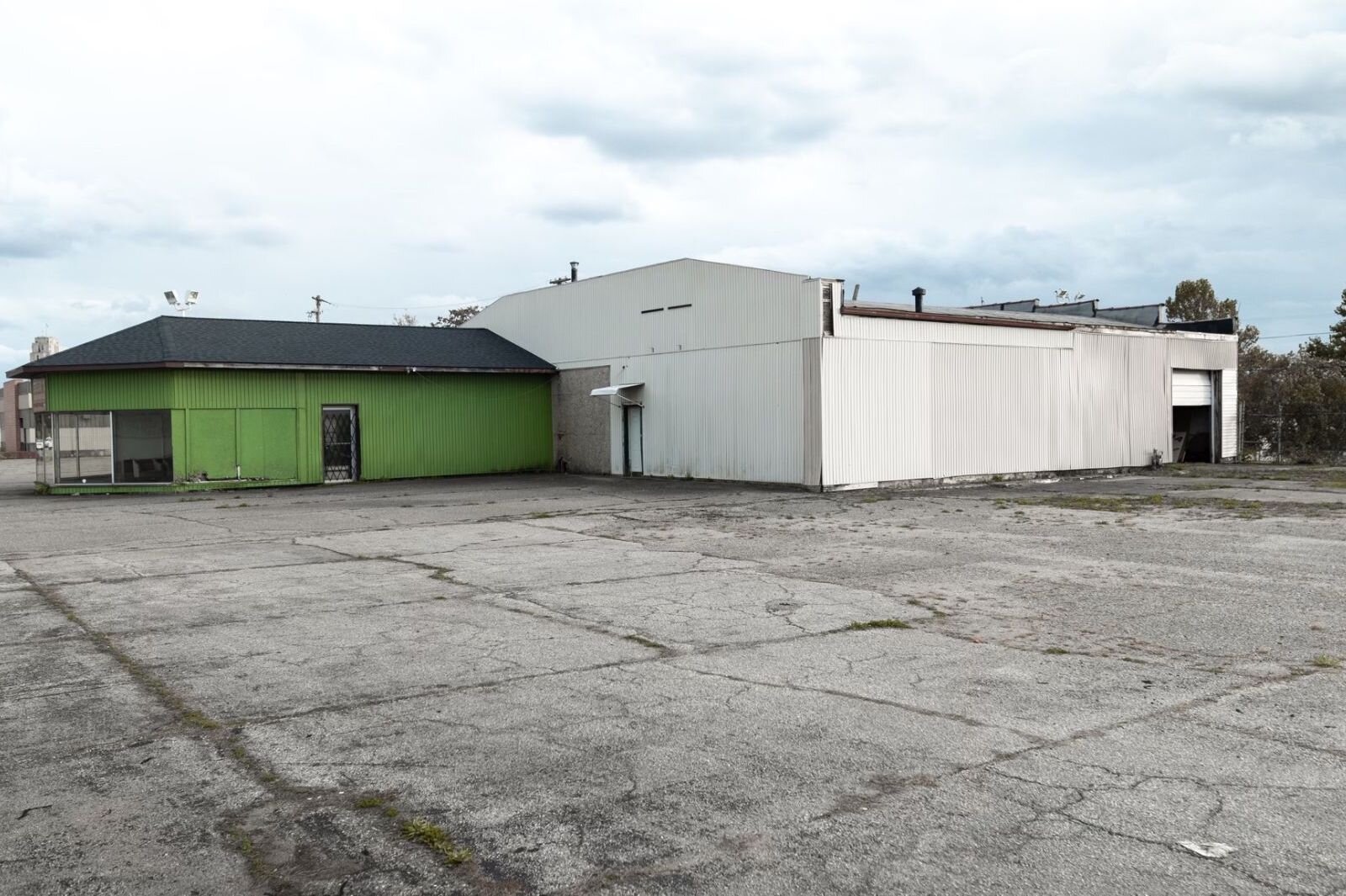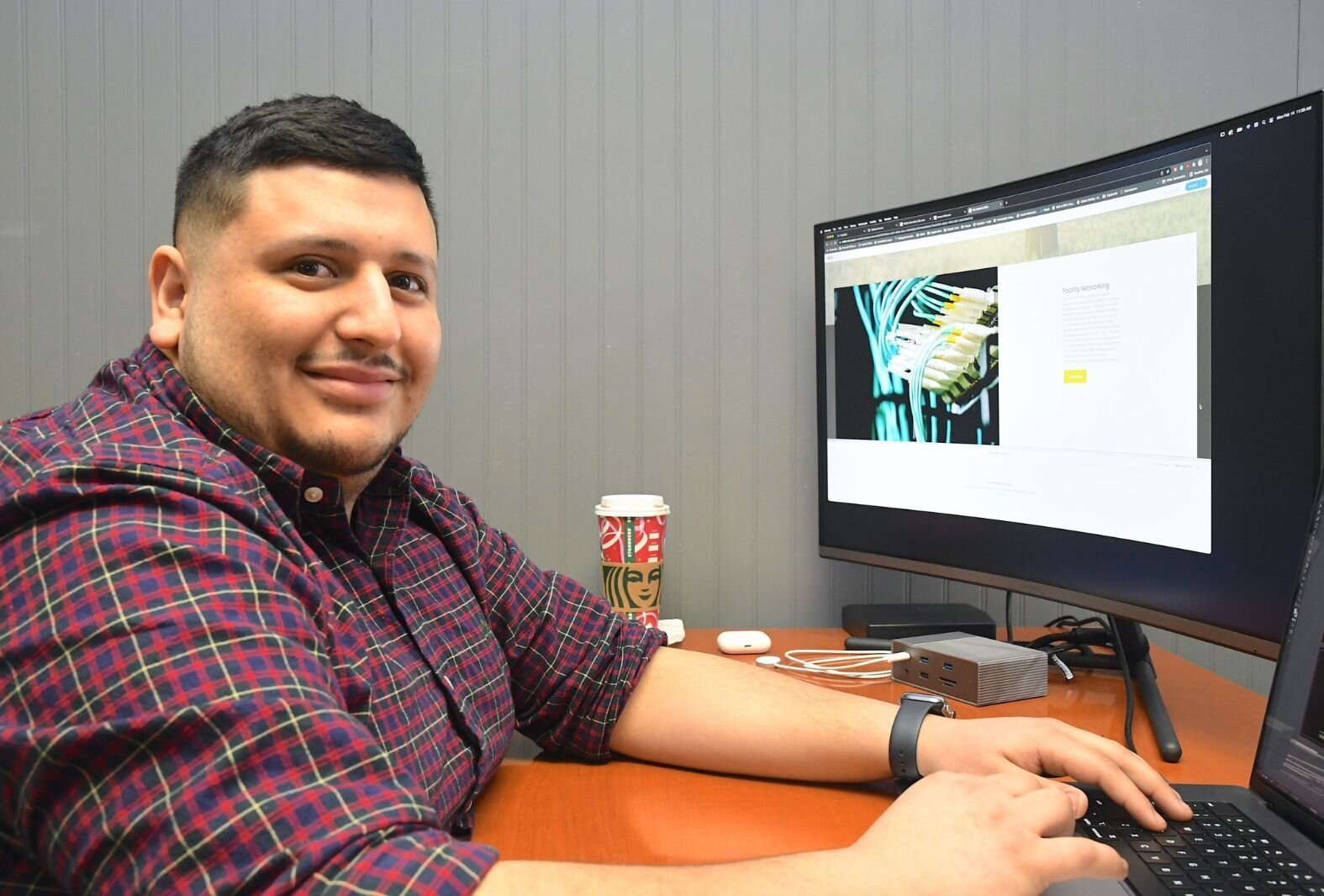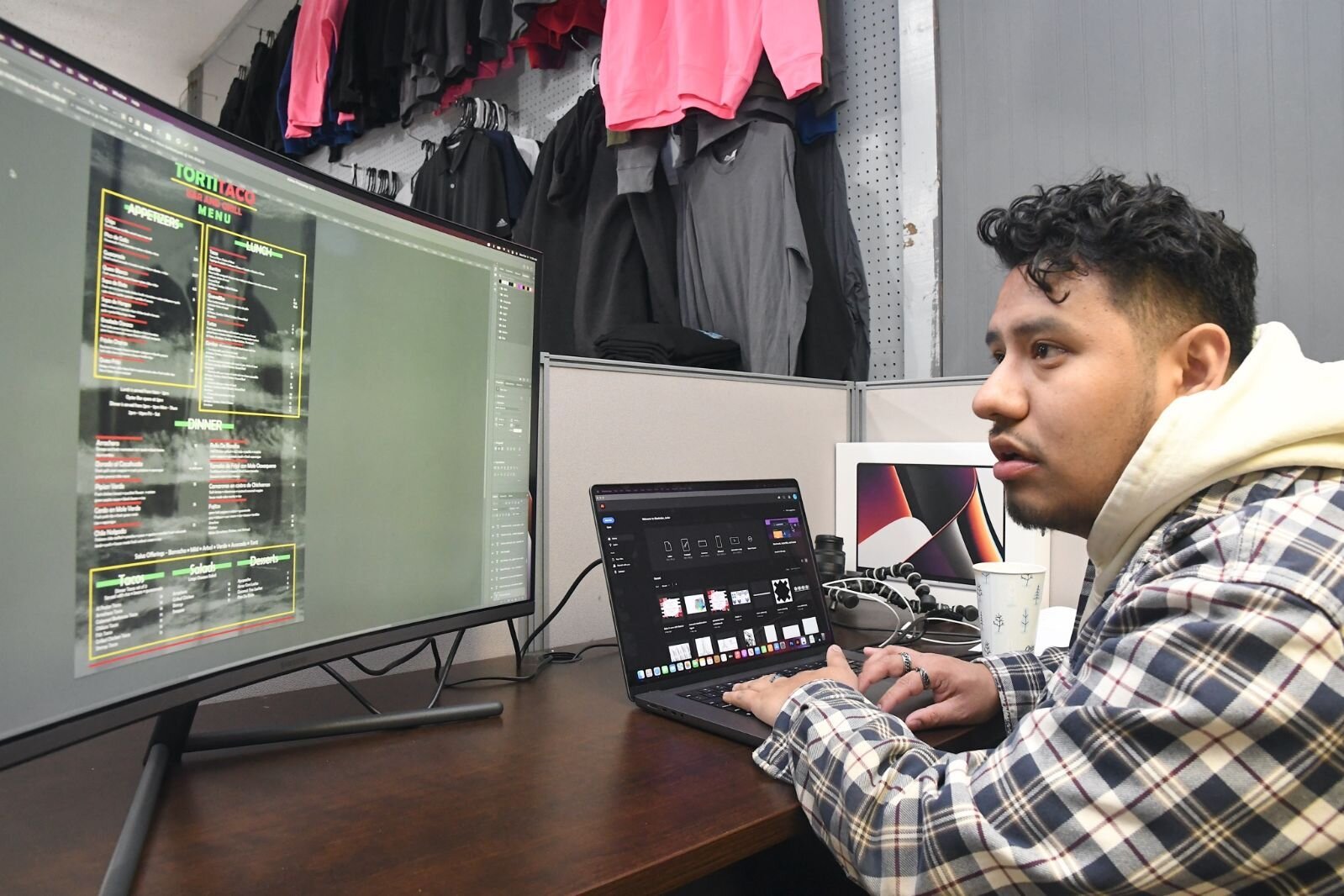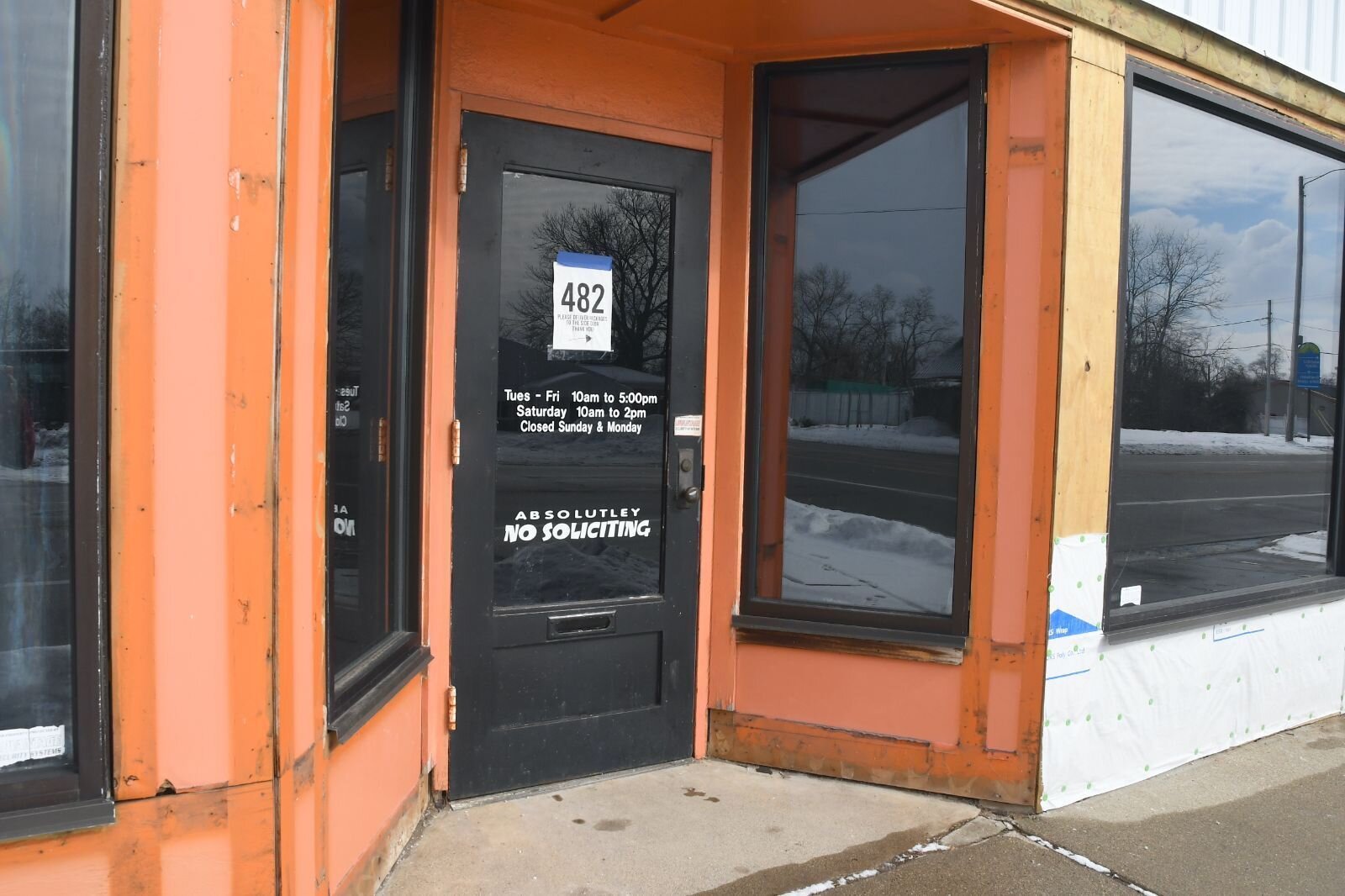Editor’s note: This story is part of Southwest Michigan Second Wave’s On the Ground Battle Creek series.
A new event space and a state-of-the-art T-shirt design and printing business are among 11 projects that will receive financial assistance through the $2 million Washington Heights Entrepreneurial Fund.
The Entrepreneurial Fund is supported by the W.K. Kellogg Foundation (WKKF). It was established by Battle Creek Unlimited (BCU) in partnership with New Level Sports Ministries (NLSM) and prioritizes low-to-middle income Black, Hispanic, and Burmese individuals, who have traditionally had limited access to capital.
This was the case for Tonesha Heath who received $300,000 from the Entrepreneurial Fund to turn a 5,000-square-foot building at 311 W. Michigan Avenue into a community event space. It will have the capacity to host events ranging from children’s programs to business pop-ups to an indoor farmer’s market. The building sits on about one acre and most recently housed her late father’s law practice. Heath, who was born and raised in Battle Creek, says she will be calling her new venture The Link.
“My husband and I were wanting to literally do that — linking the community together into a safe space for the people of Battle Creek. But because it’s located in Washington Heights it’s allowing for space on that side of town where there are limited options for hosting these events,” Heath says. “There’s always a church space available, but not everyone is always comfortable going into a church. This is just a place for everyone.”
The Entrepreneurial Fund was developed as a catalyst to spur increased growth and economic development in Washington Heights, an area that has historically been excluded when the lines have been drawn for federally-funded Opportunity Zones that boost development in downtown Battle Creek.
“We noticed that opportunity zones were etched all around Washington Heights and we realized that a lot of the money from the federal government wasn’t going to make it into Washington Heights,” said Will Fobbs, a Community Advocate in an earlier story about the Washington Heights Entrepreneurial Fund. “A lot of grants are dependent on being included in an opportunity zone. I started doing some research and then found out about the improvements downtown. You can go east on Michigan Avenue and see development and cranes and you can literally go across Washington Avenue and not see that.”
Washington Avenue marks the entry point into Washington Heights, a predominantly African American neighborhood that has its fair share of vacant land and buildings that leaders in that neighborhood have identified as having the potential to house businesses, including grocery stores, restaurants with live entertainment, an urgent care facility, and a bank or credit union.
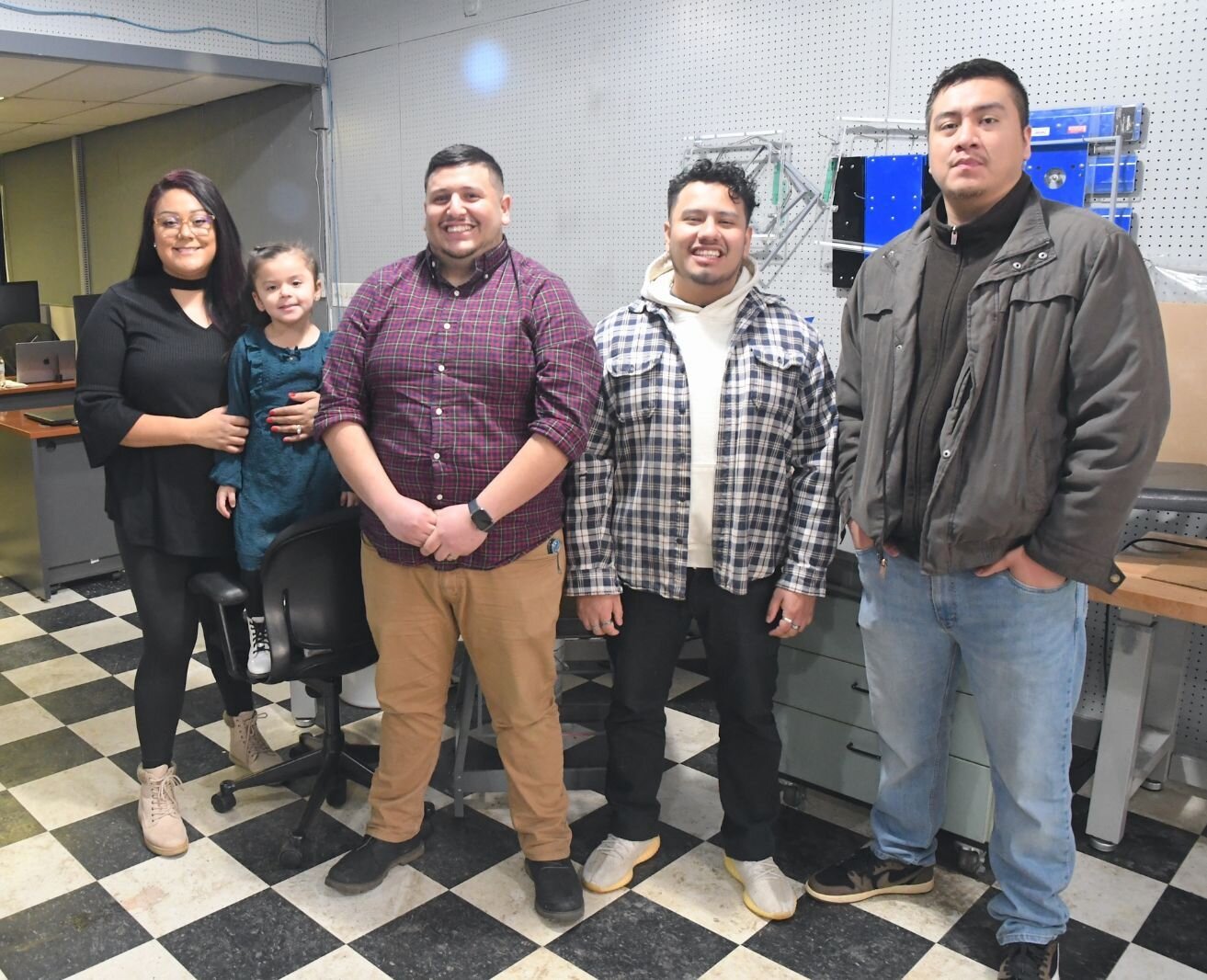
The neighborhood became the focus of the WKKF funding because it is adjacent to downtown Battle Creek, the focal point of much recent redevelopment, and at 67% of the population, Washington Heights has the largest concentration of Black residents in Battle Creek.
“Historically, communities of color have been shut out of business loans and financing,” said Pastor Chris McCoy of New Level Sports Ministries in a press release announcing the recipients. “This program is an important step in bringing opportunity to Black, Hispanic and Burmese entrepreneurs. It will help level the playing field for business owners and improve the Washington Heights community.”
Projects fall under real estate or business categories. Applicants were eligible for grants of up to $300,000 for real-estate-only improvements. Business applicants were eligible for low-interest loans of up to $150,000, with the possibility of forgiveness, for viable startups and existing businesses. A single applicant could be funded in both areas, but total grants will not exceed $350,000.
The average grant amount was $150,000, says Joe Sobieralski, CEO of BCU.
“We think these are a one-of-a-kind dollar amounts and opportunities,” Sobieralski says. “To my knowledge, nothing like this exists anywhere else.”
Hexxon Villa received a $200,000 grant and a loan for an undisclosed amount to make improvements to Hexx Design Co., the T-shirt business he relocated in July from the basement of his home to a building at 482 W. Michigan Avenue that formerly housed a Harley-Davidson shop. Villa says he is using the funds to demolish the back half of the 6,500-square-foot building and house digital inkjet printer equipment that is now in the front.
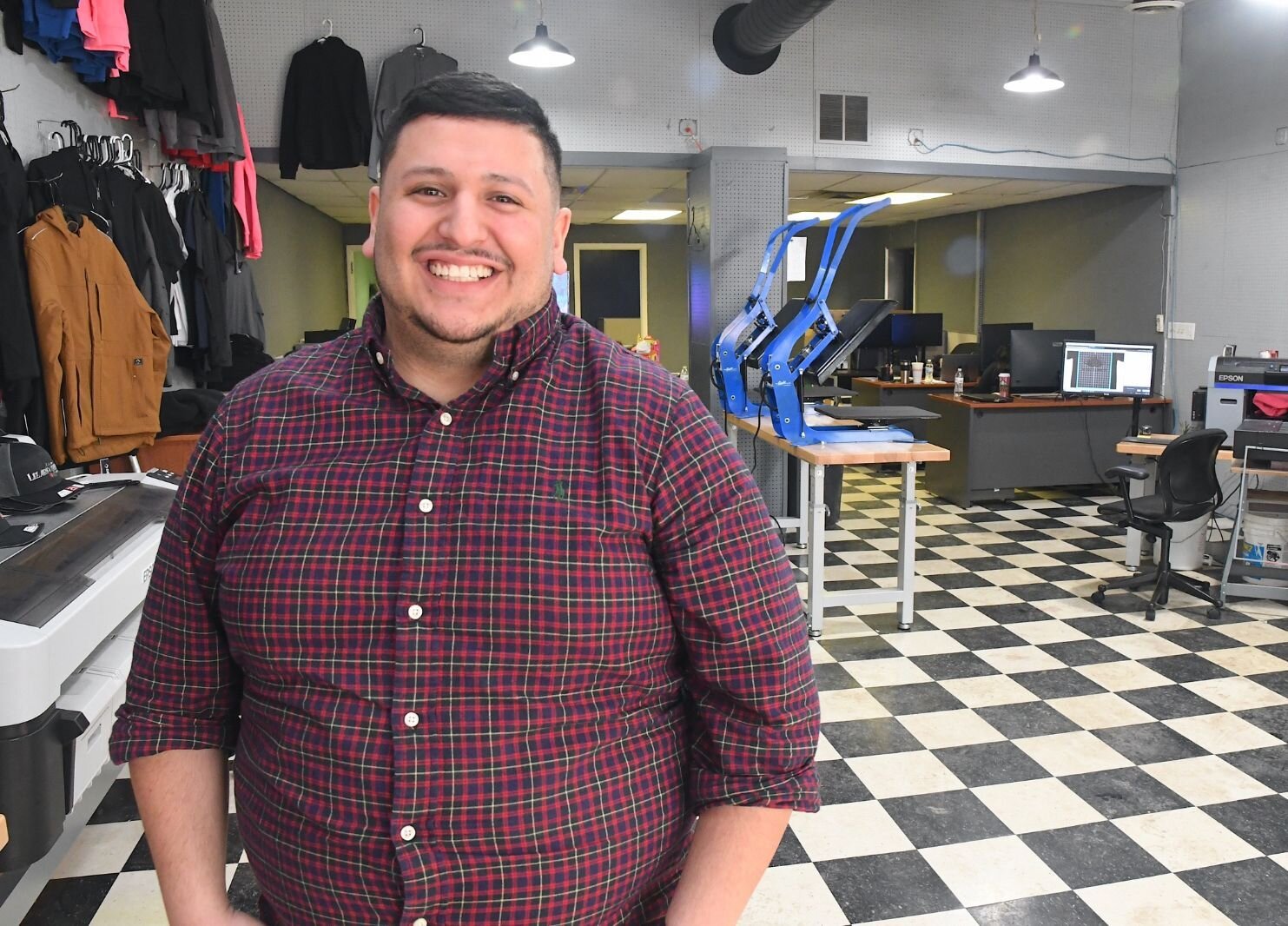
The business was outgrowing the basement prior to the onset of the pandemic. When social distancing and masks became the norm, Villa says it became too difficult to have customers coming in and out.
The larger space enabled Villa and his wife, Juliet, who manage Hexx Design, to bring on a business partner and graphic designer, Javier Fortoso Jr. who was originally a client of theirs who was designing clothing and streetwear. Villa has another partner, David Ninis, who co-founded the business with him.
“We want partners, not just employees. We want to make it more of a team effort,” Villa says. “I learned early on that I couldn’t do everything myself. Javier started with us in 2021 and that’s where we realized we needed to go somewhere that’s more professional and we needed the infrastructure to keep people safe.”
The digital printing enables Villa and his team to print any full-color design directly onto a T-shirt. They can do individual T-shirts with customized designs as well as bulk orders for any business or organization.
“We can make every single shirt completely different and the pricing stays the same,” Villa says. “You could order a custom-designed shirt online and pay $30 to $40 and you won’t know if it’s what you envisioned until you get it. Or you come to us, pay less, and know exactly what you’re getting because we’re here and we’re local.”
When the rebuild is completed he plans to have an office, showroom/meeting area and design studio in the front half of the building.
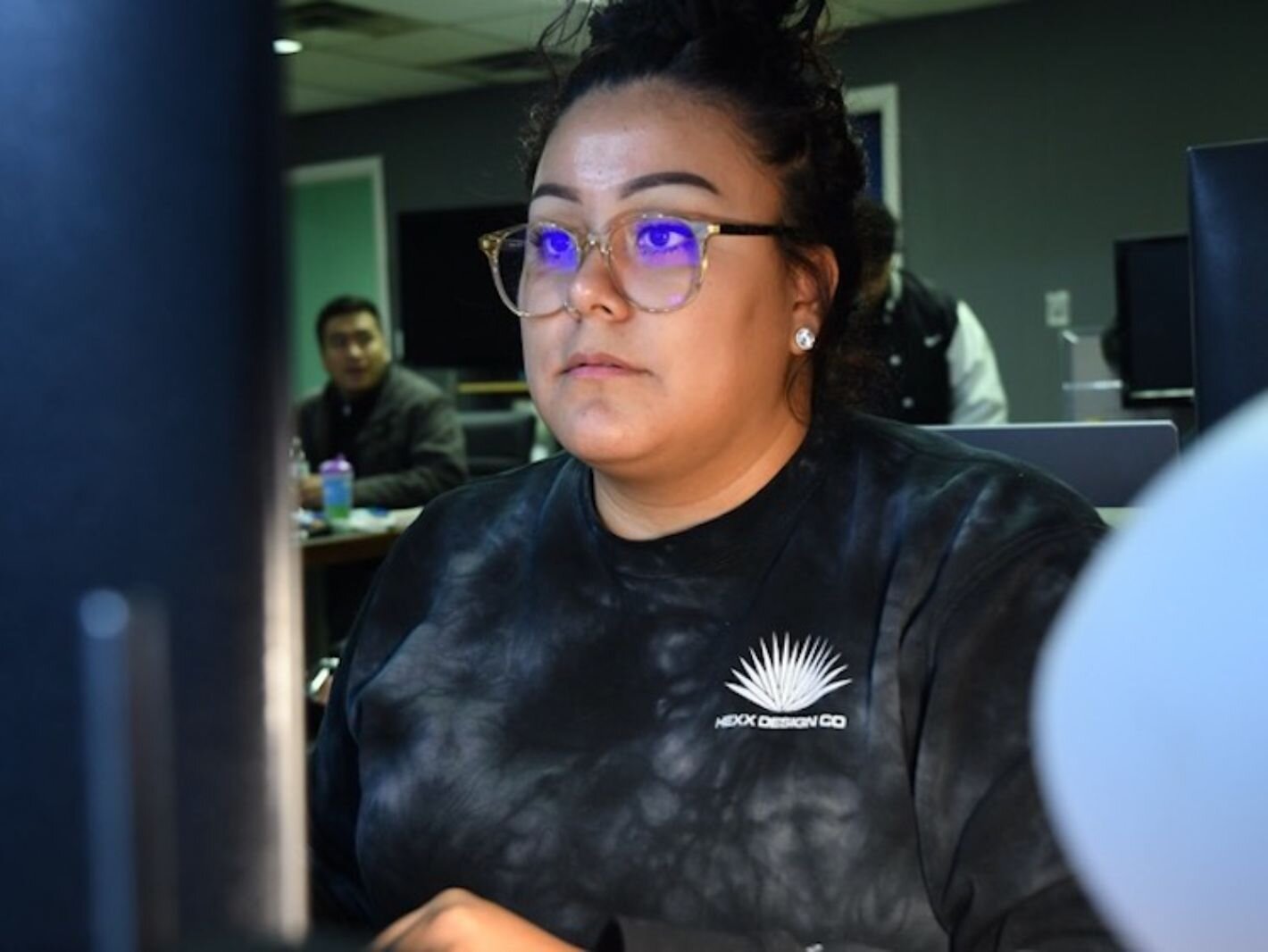
“We’re pretty much going to remodel the whole building,” Villa says.
The total cost of this remodel will be $600,000. Villa says he’s confident that he will be able to secure the remainder not covered by the WHEF because his business is unique and fills a void in the community.
When he started Hexx Design out of his home in 2020, Villa says partnering and working with other minority-owned businesses was an area of focus and that’s when he says he noticed that the market for what he could do for them is underserved and they needed a lot of assistance.
“I want to help them have a professional image,” Villa says. “We have a really strong business model and game plan and we’ve been seeing a market that’s completely underserved. We’re building all of these relationships and helping other small businesses and as they grow, we grow right there with them.”
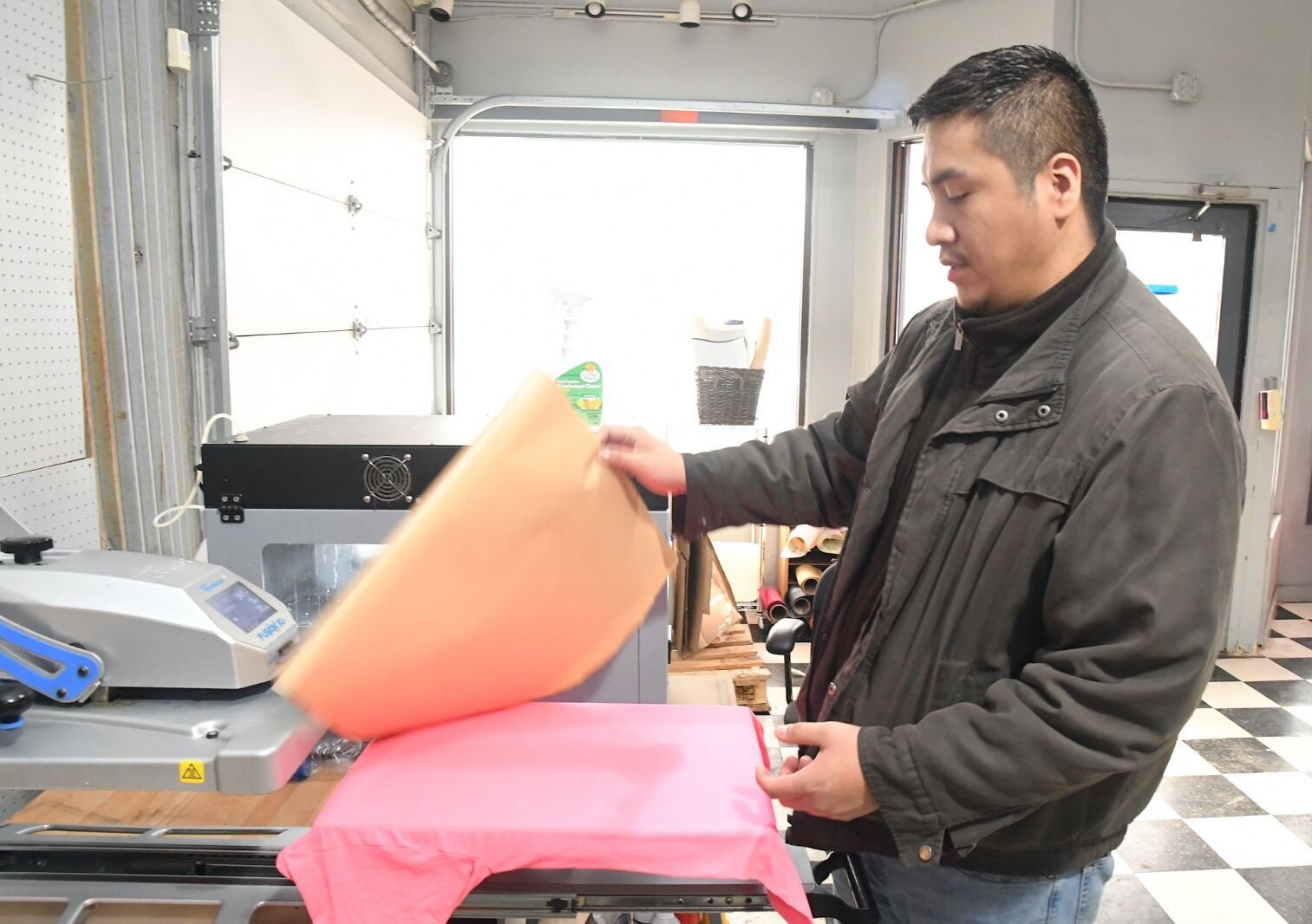
Demonstrating potential success
The 11 projects selected to receive WHEP funding were among 37 submitted after the application submission process opened in May.
A six-member selection committee reviewed each application, Sobieralski says.
The WHEF-funded projects were awarded after an initial cohort of applicants completed several months of business classes. The free courses, offered by the Michigan Small Business Development Center, helped participants strengthen their business plans and cash flow projections, positioning their business for sustainable growth.
Sobieralski says in making their decisions, selection committee members looked at the ability of applicants to successfully execute their business plan and what the success rate could be.
Heath had been working on a plan for The Link even before she heard about the WHEF grants and loans.
“I’m a woman of faith so this was something that got in my spirit and I’m being obedient to that,” she says of the event center space. “I have a strong support system two years into this. A lot of people are rooting for me and I know that this is something the community really needs.”
Her husband, Marcelle Heath, who works for the Calhoun County Intermediate School District, is part of her support system and is playing a support role in her project which she will be juggling along with a full-time job working on social projects in the Battle Creek office of Gingras Global, a social impact investment company.
“There were no criteria based on specific businesses coming into Washington Heights,” Sobieralski says. “We were looking to see whether it was going to complement what’s already going on in the area, is it going to be successful, and are applicants able to fill funding gaps with additional funding from other sources.”
Like Villa, Heath says her WHEF grant won’t cover the entire cost of converting the building that has been in her family for more than 15 years into an event space. She says she already has funding lined up to cover the total estimated cost of $500,000.
But, assembling the financing was not her only challenge.
“At first when I was seeking community support I was getting quotes from contractors,” Heath says. “As an African American businesswoman, it’s really tough to gain the respect of these contractors and business owners for what I’m going to do.”
Having the backing of the WHEF and Heath’s confidence in the future success of her project, garnered her the respect of contractors. She says securing the WHEF grant was never a sure thing because of the other projects submitted.
In addition to The Link and Hexx Design, other projects that received WHEP funding are:
• Brilliant Minds Family Counseling – Keith Matthews, Brook-Lyn Glass. An existing business that will use the funds it received to open its own space to provide counseling services.
• Sherrill Cotton Funeral & Cremation – Sherrill Cotton. A new business that will offer funeral and cremation services.
• New Level Church – Dr. Gregory Dotson. An existing organization that will be using the WHEF funds to increase generational wealth.
• Simply Sensational Berries – Markeeta Haddley, Craig Owens. An existing business that creates desserts and sweets. They will use the WHEF funds to grow their business.
• Sunlight Gardens – Devon Wilson. An existing urban farm with plans to bolster its existing operations. WHEF funds will allow the group to upgrade its greenhouse, garden spaces, and other facilities. The group supplies local markets and restaurants with its fresh produce.
• Tommy & Co – Marcus Willis. An existing business barber and beauty salon that will use their WHEF funding to do renovations to their existing facility.
• Urban Arts Incubator – Taylor McCoy, Jaziel Pugh, Iroham Ekeledo, Carolyn Washington, Marcus Ervin. A new business that will be an arts incubator and makerspace for aspiring artists to learn, make, and sell their artwork. WHEF funds will be used to purchase graphic art design, screen-printing, embroidery, and sublimation printing equipment.
• V.I.A.T.A.G. – Jeffrey Cotton. A new state-of-the-art Audiovisual Recording Business that focuses on providing the audio and visual needs of artists and businesses alike. WHEF funds will be used to build an on-site recording location.
• West End Kitchen – Sidney Ekeledo, Malika Flenoral, Treione Barlow. A new shared use and an incubator kitchen that will be built with WHEF funds. The shared-use kitchen (Cooperative) and event space will help to expand the local food economy by supporting its producers.
“The interest in this program has been overwhelming,” Sobieralski says. “The fund is a first of its kind, and we hope its demonstrated success will change the dynamics for those who have been traditionally excluded from conventional business development practices.”


